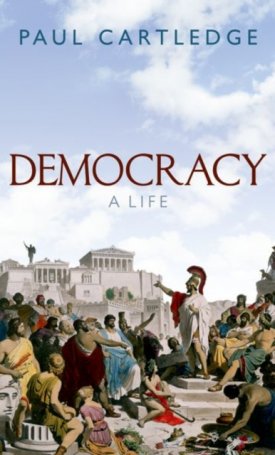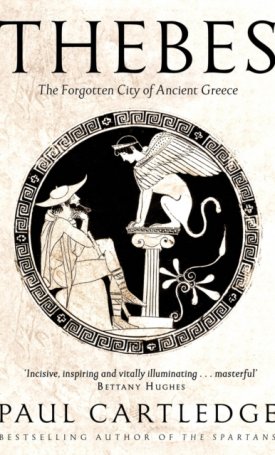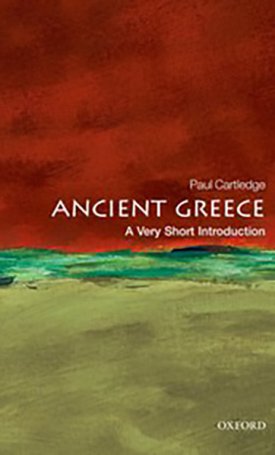Democracy - A Life
ISBN: 9780198815136
Language: english
Size: 134*216
Weight: 530 g
Page no.: 416
Publish year: 2018
Democracy - A Life
ISBN: 9780198815136
Language: english
Size: 134*216
Weight: 530 g
Page no.: 416
Publish year: 2018
The long story of democracy, from ancient Greece to the twenty-first century, including:
How democracy was born and developed in the ancient world — and the many different forms that it took
The long centuries of democratic eclipse — from Byzantium to the Renaissance
The arguments against democracy over the centuries
The re-birth of democracy in seventeenth-century England, revolutionary France, and the United States
How democracy has been constantly reconstituted and reinvented ever since
With a new afterword for the paperback edition, reflecting on recent events in Western-democracy such as Brexit and the rise of populism.
Democracy is either aspired to as a goal or cherished as a birthright by billions of people throughout the world today — and has been been for over a century. But what does it mean? And how has its meaning changed since it was first coined in ancient Greece?
Democracy: A Life is a biography of the concept, looking at its many different manifestations and showing how it has changed over its long life, from ancient times right through to the present. For instance, how did the `people power` of the Athenians emerge in the first place? Once it had emerged, what enabled it to survive? And how did the Athenian version of democracy differ from the many other forms that developed among the myriad cities of the Greek world?
Paul Cartledge answers all these questions and more, following the development of ancient political thinking about democracy from the sixth century BC onwards, not least the many arguments that were advanced against it over the centuries. As Cartledge shows, after a golden age in the fourth century BC, there was a long, slow degradation of the original Greek conception and practice of democracy, from the Hellenistic era, through late Republican and early Imperial Rome, down to early Byzantium in the sixth century CE.
For many centuries after that, from late Antiquity, through the Middle Ages, to the Renaissance, democracy was effectively eclipsed by other forms of government, in both theory and practice. But as we know, this was by no means the end of the story. For democracy was eventually to enjoy a re-florescence, over two thousand years after its first flowering in the ancient world: initially revived in seventeenth-century England, it was to undergo a further renaissance in the revolutionary climate of late-eighteenth-century North America and France — and has been constantly reconstituted and reinvented ever since.
Table of Contents
Preface and Acknowledgements
Timeline
Prologue: Lost in Translation?
ACT I
1: Sources, Ancient and Modern
2: The Emergence of the Polis, Politics, and the Political
ACT II
3: The Emergence of Greek Democracy I: Archaic Greece
4: The Emergence of Greek Democracy II: Athens 508/7
5: The Emergence of Greek Democracy III: Athens 507-451/0
6: Greek Democratic Theory?
7: Athenian Democracy in Practice c. 450-335
8: Athenian Democracy: Culture and Society c. 450-335
9: Greek Democracy in Credit and Crisis I: The Fifth Century
10: Athenian Democracy in Court: The Trials of Demos, Socrates, and Ctesiphon
ACT III
11: Greek Democracy in Credit and Crisis II: The Golden Age of Greek Democracy (c. 375-350) and Its Critics
12: Athenian Democracy at Work in the `Age of Lycurgus`
13: The Strange Death of Classical Greek Democracy: A Retrospect
ACT IV
14: Hellenistic Democracy? Democracy in Deficit c. 323-86 BCE
15: The Roman Republic: A sort of Democracy?
16: Democracy Denied: The Roman and Early Byzantine Empires
17: Democracy Eclipsed: Late Antiquity, the European Middle Ages, and the Renaissance
ACT V
18: Democracy Revived: England in the Seventeenth Century and France in the Late Eighteenth and Early Nineteenth Centuries
19: Democracy Reinvented: The United States in the Late Eighteenth and Early Nineteenth Centuries and Tocqueville`s America
20: Democracy Tamed: Nineteenth-Century Great Britain
Epilogue: Democracy Now: Retrospect and Prospects
Afterword
Notes and References
Bibliography and Further Reading
Index
Paul Cartledge was the inaugural A. G. Leventis Professor of Greek Culture in the University of Cambridge, and President of Clare College, Cambridge. Between 2006 and 2010 he was Hellenic Parliament Global Distinguished Professor in the History and Theory of Democracy at New York University. Over the course of his distinguished career he has written and edited numerous books on the ancient Greek world, including The Greeks: A Portrait of Self and Others (2002), Ancient Greece: A Very Short Introduction (2011), and After Themopylae (2013), all also published by Oxford University Press. He has also served as historical consultant for the BBC television series The Greeks, and for four Channel 4 documentaries, including The Spartans.
















